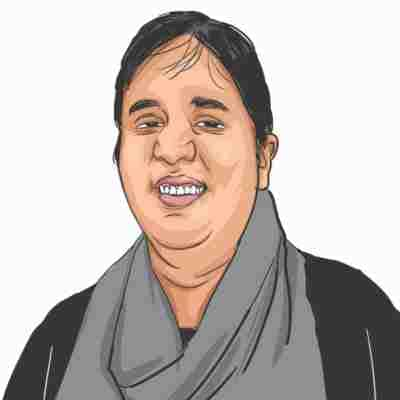Opinion Motherhood has a price
It is automatically assumed that since women give birth and breastfeed, reproduction and childcare are their concerns alone. So it falls to them to efficiently manage their responsibilities towards their children as well as work. And if they are unable to do this for any reason, they should simply quit and retreat to their homes, anyway regarded as their primary realm.
 Identifying and clearly naming multiple forms of patriarchy can be quite difficult. Calling out its subtle and blatant manifestations, and operations requires effort, energy, a specific vocabulary and, most importantly, courage.
Identifying and clearly naming multiple forms of patriarchy can be quite difficult. Calling out its subtle and blatant manifestations, and operations requires effort, energy, a specific vocabulary and, most importantly, courage. With Mother’s Day around the corner, our social media feed has started to fill up with messages emphasising the importance of mothers in our lives, the countless things they gave up to make us who we are today and the need to celebrate their self-effacing contributions through a token of love.
This insistence on acknowledging mothers on a designated day throws up a range of questions: why do women have to give up things in the first place if they choose to be mothers? Why do they have to pay a price for motherhood? Why are they expected to efface themselves for preserving home life and raising children?
Most of these sacrifices are by-products of the everyday compulsions and demands of patriarchy, operating at multiple levels. Working mothers, nursing infants or with young children are often designated as a “problem” by their employers and co-workers. Even if we were to go with this unsavoury equation that views new mothers merely as “problems”, what could then be the possible solution to achieve a balance between paid work and childcare duties? Such a solution is, unfortunately, hard to come by. What is readily offered instead and aplenty is wishful thinking — a fond expectation that the problem should disappear on its own or magically resolve itself without any support or extra effort.
It is automatically assumed that since women give birth and breastfeed, reproduction and childcare are their concerns alone. So it falls to them to efficiently manage their responsibilities towards their children as well as work. And if they are unable to do this for any reason, they should simply quit and retreat to their homes, anyway regarded as their primary realm.
Thus, the language of rights, equal opportunities and legal safeguards is replaced by empty claims of worshipping mothers, and affording them a high status and honour. Motherhood, achieved within the framework of marriage, hence becomes the defining marker for women. Instead of being viewed as living, thinking individuals, who have their own will, choice and aspirations, they come to be regarded as mere agents fulfilling a greater purpose — that of bringing a new life into the world, and of providing it care.
However, the recourse to these idealised abstractions swiftly gives way to indifference, insensitivity and downright annoyance when faced with real, practical concerns. Thus, women’s expectations for breastfeeding stations and crèches at their places of work, supportive husbands and relations, shared responsibility of childcare and more are labelled as “undue” and even “exorbitant”. At the heart of such resentful attitudes lies the patriarchal presumption that views child raising as the primary responsibility of women.
most read
But the locus of patriarchy is not merely to be found outside — within societal, communal, kinship and other familial structures. It is very much located within as well, shaping the world views of women themselves who too have, for centuries, absorbed and reproduced oppressive codes and practices. A major strength of patriarchy is that it comfortably attunes itself to changing times, while keeping its limiting values intact. It can even masquerade as a marker of women’s free will and choice. Thus, highly paid mothers decide to give up lucrative jobs on their own in order to stay at home full-time and nurture their children, while the fathers continue to work outside to support the families.
Identifying and clearly naming multiple forms of patriarchy can be quite difficult. Calling out its subtle and blatant manifestations, and operations requires effort, energy, a specific vocabulary and, most importantly, courage.
The writer is an assistant professor of history at Azim Premji University, Bhopal. (National Editor Shalini Langer curates the fortnightly ‘She Said’ column)






